 W
WJohn Joseph Abercrombie was a career United States Army officer who served in numerous wars, finally reaching the rank of brigadier general during the American Civil War.
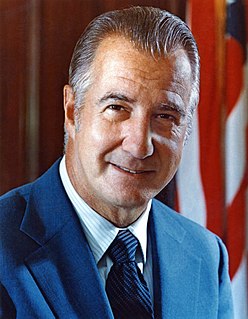 W
WSpiro Theodore Agnew was the 39th vice president of the United States from 1969 until his resignation in 1973. He is the second and most recent vice president to resign the position, the other being John C. Calhoun in 1832. Unlike Calhoun, Agnew resigned as a result of a scandal.
 W
WMajor General Robert Alexander was a senior United States Army officer. He served in World War I, where he commanded the 77th Infantry Division on the Western Front.
 W
WJohn Ashby Baldwin Jr. is a retired vice admiral of the United States Navy active during much of the Cold War. He commanded destroyers and a carrier battle group, saw service in the Vietnam War, served on the staffs of the Chief of Naval Operations, the Joint Chiefs of Staff, the Secretary of the Navy, and the Secretary of Defense, and was President of the Naval War College and of the National Defense University.
 W
WJoshua Barney was an American Navy officer who served in the Continental Navy during the Revolutionary War. He later achieved the rank of commodore in the United States Navy and also served in the War of 1812.
 W
WGeorge Bell Jr. was a United States Army Major General. He commanded the 33rd Infantry Division during World War I and also commanded the United States VI Corps.
 W
WBarry C. Black is the 62nd chaplain of the United States Senate. He began serving as Senate chaplain on June 27, 2003, becoming the first African American and the first Seventh-day Adventist to hold the office. The Senate selected its first chaplain in 1789.
 W
WJerome Napoleon Bonaparte II was a French-American military officer who served in the United States Army and later in the French Army. He was a member of the American branch of the Bonaparte family.
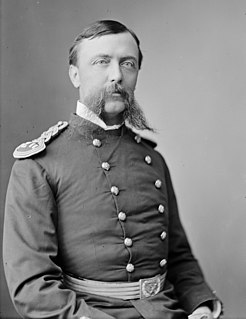 W
WJoseph Cabell Breckinridge Sr. was a Union Army officer from Kentucky during the American Civil War. In later life, he became a brigadier general in the U.S. Regular Army and Inspector General of the Army as well as a major general of volunteers in the Spanish–American War.
 W
WDaniel Baugh Brewster was a Democratic member of the United States Senate, representing the State of Maryland from 1963 until 1969. He was also a member of the Maryland House of Delegates from 1950 to 1958, and a representative from the 2nd congressional district of Maryland in the United States House of Representatives from 1959 to 1963.
 W
WRear Admiral William Herman Brockman Jr. served in the United States Navy during World War II.
 W
WWesley Anthony Brown was the first African-American graduate of the United States Naval Academy (USNA) in Annapolis, Maryland. He served in the United States Navy from May 2, 1944, until June 30, 1969. He was involved in both the Korean and Vietnam wars.
 W
WFranklin Buchanan was an officer in the United States Navy who became the only full admiral in the Confederate Navy during the American Civil War. He also commanded the ironclad CSS Virginia.
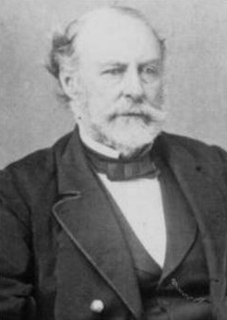 W
WRobert Christie Buchanan was an American military officer who served in the Mexican–American War and then was a colonel in the Union Army during the American Civil War. In 1866, he was nominated and confirmed for appointment to the grades of brevet brigadier general and major general in the Regular Army for valor in several battles, to rank from March 13, 1865. In a career that spanned more than forty years, Buchanan held numerous commands and received multiple citations for bravery and distinguished service.
 W
WJames Buck was an American Civil War Medal of Honor recipient and a sailor in the United States Navy.
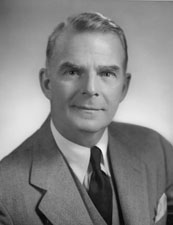 W
WJohn Marshall Butler was an American lawyer and politician. A Republican, he served as a United States Senator from Maryland from 1951 to 1963.
 W
WAbel G. Cadwallader was a Union Army soldier in the American Civil War who received the U.S. military's highest decoration, the Medal of Honor, for his actions at the Battle of Hatcher's Run.
 W
WWilliam M. Carr was a Union Navy sailor in the American Civil War and a recipient of the U.S. military's highest decoration, the Medal of Honor, for his actions at the Battle of Mobile Bay.
 W
WHenry Goodman Chiles Jr. is a retired United States Navy four star admiral who served as Commander in Chief, United States Strategic Command (USCINCSTRAT), from 1994 to 1996, the first naval officer to command all of the strategic nuclear forces of the United States.
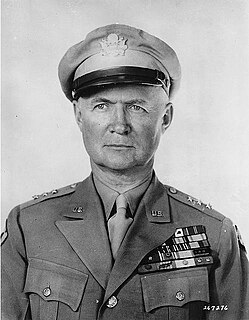 W
WLieutenant General Willis Dale Crittenberger was a senior officer of the United States Army. He was a career soldier who served with distinction during the Italian Campaign of World War II.
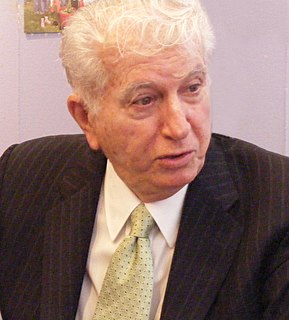 W
WThomas Ludwig John D'Alesandro III was an American attorney and politician who served as the 43rd mayor of Baltimore from 1967 to 1971. He was the eldest brother of Speaker of the U.S. House of Representatives Nancy Pelosi, and a son of former Baltimore mayor Thomas D'Alesandro Jr., who served from 1947 to 1959. The Baltimore riot of 1968 occurred during his tenure as mayor.
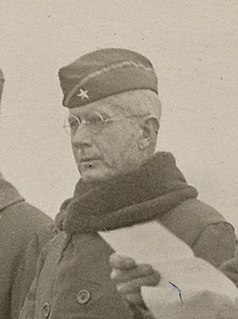 W
WThomas Buchanan Dugan was a United States Army officer in the late 19th and early 20th centuries.
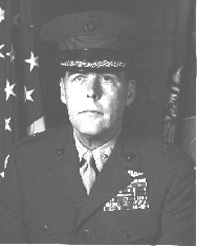 W
WBrigadier General Walter Daniel Fillmore was a general officer in the United States Marine Corps.
 W
WPatrick Finnegan was a United States Army Brigadier General, and the president of Longwood University. Finnegan served 39 years in the U.S. Army, retiring in 2010 after serving as the 12th Dean of the Academic Board at the U.S. Military Academy. Following his Army career, he was appointed as the 25th President of Longwood University in 2010. Finnegan stepped down as President in 2012 due to health reasons, and returned to private life.
 W
WChristian Abraham Fleetwood, was an African American non-commissioned officer in the United States Army, an editor, a musician, and a government official. He received the Medal of Honor for his actions during the American Civil War.
Rear Admiral John Donaldson Ford was an officer in the United States Navy during the American Civil War and the Spanish–American War.
 W
WWilliam Henry French was a career United States Army officer and a Union Army General in the American Civil War. He rose to temporarily command a corps within the Army of the Potomac, but was relieved of active field duty following poor performance by his command during the Mine Run Campaign in late 1863. He remained in the Army and went on to command several Army installations before his retirement in 1880.
 W
WFrancis Warrington Gillet was an American flying ace who served in both the American and British armed forces as a pilot during World War I. With 20 credited aerial victories he was the highest scoring pilot flying the Sopwith Dolphin, and the second highest scoring American, only surpassed by Eddie Rickenbacker.
 W
WGordon Gray was an official in the government of the United States during the administrations of Harry Truman (1945–53) and Dwight Eisenhower (1953–61) associated with defense and national security.
 W
WHenry Nicholas John Gunther was an American soldier and likely the last soldier of any of the belligerents to be killed during World War I. He was killed at 10:59 a.m., about one minute before the Armistice was to take effect at 11:00 a.m.
 W
WCharles Hazeltine Hammann was an officer in the United States Navy, an early naval aviator, and a recipient of the Medal of Honor.
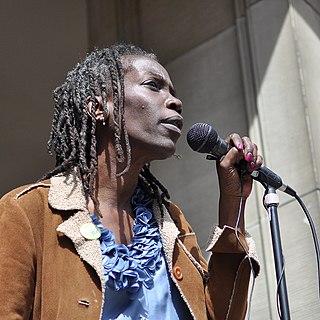 W
WJo Ann A. Hardesty is an American Democratic politician in the U.S. state of Oregon who is currently a Portland City Commissioner, having taken office on the Portland City Council in January 2019. She previously served in the Oregon House of Representatives from 1995 until 2001. Hardesty is the first African American woman to serve on Portland's city council.
 W
WElaine D. Harmon was an American from Maryland who served in the U.S. Women Airforce Service Pilots (WASP) during World War II. In 2009 she received a Congressional Gold Medal for her service as a pilot during World War II. As a WASP pilot, she has been accorded full military honors at Arlington National Cemetery. In 2016, Ms. Harmon was posthumously inducted into the Maryland Women's Hall of Fame.
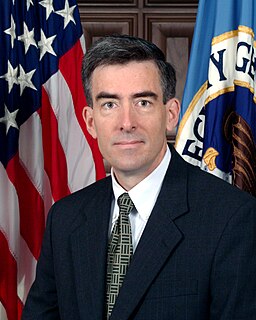 W
WJohn Chris Inglis, also known as Chris Inglis, is a former Deputy Director of the National Security Agency. He retired as Deputy Director on January 10, 2014.
 W
WJohn William Kime was a United States Coast Guard admiral who served as the 19th Commandant of the Coast Guard from 31 May 1990 to 1 June 1994.
 W
WDaniel Lakin was an American sailor who served in the Union Navy during the American Civil War. For his actions at the Joint Expedition Against Franklin while serving aboard the USS Commodore Perry, Lakin was promoted from seaman to master's mate and received the Medal of Honor on 3 April 1863. The citation therefore reads:On board the U.S.S. Commodore Perry in the attack upon Franklin, Va., 3 October 1862. With enemy fire raking the deck of his ship and blockades thwarting her progress, Lakin remained at his post and performed his duties with skill and courage as the Commodore Perry fought a gallant battle to silence many rebel batteries as she steamed down the Blackwater River.
 W
WRichard Phillips Leary was an admiral in the United States Navy who served from the American Civil War through the Spanish–American War.
 W
WGeoffrey S. F. Ling, M.D., Ph.D., is a medical doctor who retired from the United States Army as a Colonel. He served as the Founding Director of the Defense Advanced Research Projects Agency (DARPA) Biological Technologies Office from 2014 until 2016. He was considered to be the "US Army's premier subject matter expert on traumatic brain injury (TBI)", and was for years the only neuro-intensive care specialist in the US military.
 W
WLewis Henry Little was a career United States Army officer and a Confederate brigadier general during the American Civil War. He served mainly in the Western Theater and was killed in action during the Battle of Iuka.
 W
WJohn Walter Lord Jr. was an American lawyer, ad man, author and popular historian, best known for his 1955 account of the sinking of the RMS Titanic, A Night to Remember.
 W
WCharles Marshall was a Maryland lawyer and Confederate Army officer during the American Civil War. Marshall served as an aide de camp, assistant adjutant general and military secretary to Gen. Robert E. Lee, and later worked to establish the Lost Cause and monuments to his former comrades.
 W
WVice Admiral Walter B. Massenburg is a retired US Navy admiral and former commander of the Naval Air Systems Command in Patuxent River, Maryland.
 W
WEdward Orrick McDonnell was an American vice admiral and Medal of Honor recipient.
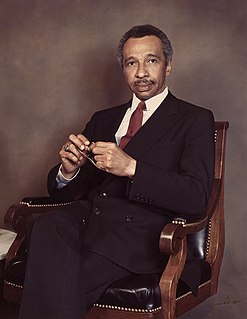 W
WParren James Mitchell was a U.S. Congressman affiliated with the Democratic Party who represented the 7th congressional district of Maryland from January 3, 1971 to January 3, 1987. He was the first African American elected to Congress from Maryland.
 W
WLoretta Eleanor "Lori" Reynolds is a lieutenant general in the United States Marine Corps. She is the third woman to earn that rank in the US Marine Corps.
 W
WMilton Ernest Ricketts was a United States Navy officer and a recipient of the United States military's highest decoration—the Medal of Honor—for his actions in World War II.
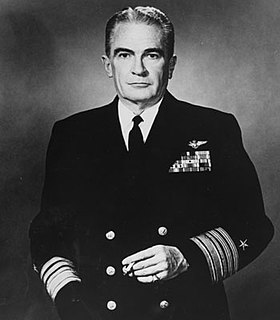 W
WHerbert Douglas Riley was a highly decorated officer in the United States Navy with the rank of Vice admiral. A Naval Academy graduate, he trained as naval aviator and distiguished himself first as Commanding officer of escort aircraft carrier USS Makassar Strait during the combats at Iwo Jima and Okinawa during World War II.
 W
WEdward Leon Rowny was a United States Army lieutenant general of Polish extraction. He was a commanding officer in World War II and Korea, a military advisor to five United States presidents and a negotiator on the Strategic Arms Reduction Treaty.
 W
WRear Admiral Benjamin F. Sands was an officer in the United States Navy during the Mexican–American War and the American Civil War.
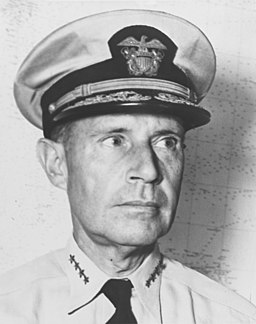 W
WRaymond Ames Spruance was a United States Navy admiral during World War II. He commanded U.S. naval forces during two of the most significant naval battles that took place in the Pacific Theatre: the Battle of Midway and the Battle of the Philippine Sea. At Midway, Spruance scored the first major victory for the United States over Japan; most historians consider Midway the turning point of the Pacific War.
 W
WAndrew Sterett was an officer in the United States Navy during the nation's early days. He saw combat during the Quasi-War with France and in the Barbary Wars, commanding the schooner USS Enterprise in both conflicts.
 W
WGeorge Hume Steuart was a planter in Maryland and an American military officer; he served thirteen years in the United States Army before resigning his commission at the start of the American Civil War. He joined the Confederacy and rose to the rank of brigadier general in the Army of Northern Virginia. Nicknamed "Maryland" to avoid verbal confusion with Virginia cavalryman J.E.B. Stuart, Steuart unsuccessfully promoted the secession of Maryland before and during the conflict. He began the war as a captain of the 1st Maryland Infantry, CSA, and was promoted to colonel after the First Battle of Manassas.
 W
WYates Stirling was a rear admiral in the United States Navy.
 W
WBenjamin Swearer was a United States Navy sailor and a recipient of the United States military's highest decoration—the Medal of Honor—for his actions in the American Civil War.
 W
WQuarter Gunner James Tallentine aka Tallentire was a Union Navy sailor who fought in the American Civil War. Tallentine received his country's highest award for bravery during combat, the Medal of Honor, for his action in the Capture of Plymouth, North Carolina, while serving on the USS Tacony. He was posthumously honored with the award after his death in the Second Battle of Fort Fisher.
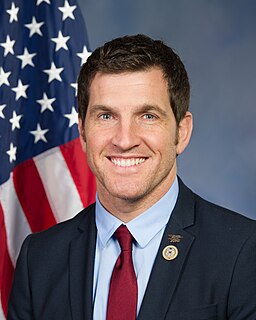 W
WScott William Taylor is an American politician and former Navy SEAL who served as the United States Representative for Virginia's 2nd congressional district from 2017 to 2019. A Republican, he was previously a member of the Virginia House of Delegates for the 85th district. On November 6, 2018, Taylor was defeated for reelection by Democrat and U.S. Navy veteran Elaine Luria. On July 8, 2019, he announced his intention to run for the United States Senate in 2020 but in December 2019 opted to run again for his old seat in the U.S. House of Representatives.
 W
WIsaac Ridgeway Trimble was a United States Army officer, a civil engineer, a prominent railroad construction superintendent and executive, and a Confederate general in the American Civil War. He was born in Virginia, lived in Maryland for much of his adult life, and returned to Virginia in 1861 after Maryland did not secede. Trimble is most famous for his role as a division commander in the assault known as Pickett's Charge at the Battle of Gettysburg. He was wounded severely in the leg during that battle, and was left on the field. He spent most of the remainder of the war as a prisoner, and was finally paroled on April 16, 1865, one week after Robert E. Lee surrendered the Army of Northern Virginia following the Battle of Appomattox Court House.
 W
WRobert Charles Tyler was a Confederate Brigadier General during the American Civil War. He was the last general killed in the conflict.
 W
WAugustus Walley was a Buffalo Soldier in the United States Army and a recipient of America's highest military decoration—the Medal of Honor—for his actions in the Indian Wars of the western United States.